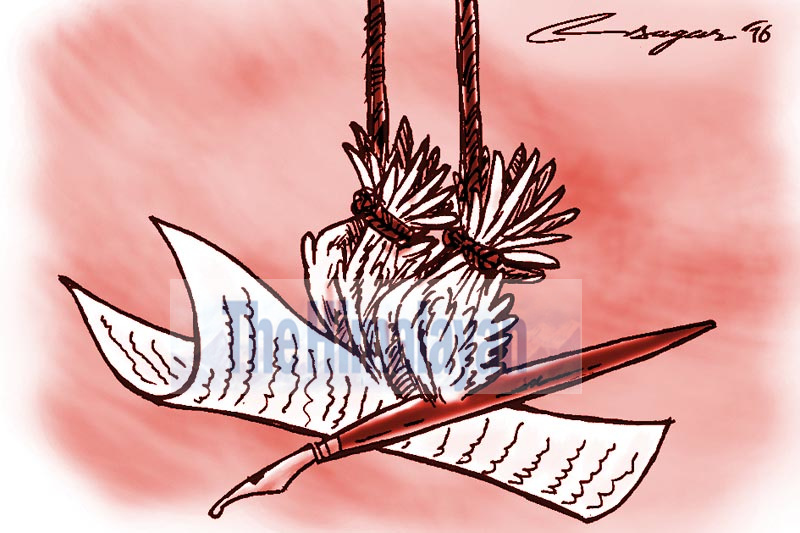Nepal retains its position in press freedom rankings, states RSF report
Kathmandu, April 18
Nepal retains its position in the press freedom rankings as per the 2019 index released by Reporters Sans Frontieres (RSF) today.
Nepal was ranked 100th among 180 countries in the 2017 World Press Freedom Index. However, in 2018, it dropped sharply and fell six places down to 106th position, which has been maintained this year as well.
In the years 2015 and 2016, Nepal held the 105th position in this index.
The report measures the level of media freedom by looking at the level of pluralism, media independence, the environment and self-censorship. RSF termed Nepali press a victim of political vicissitudes.
“In late 2017, the first local, provincial and parliamentary elections in 20 years were marked by many violations of the freedom to inform. Journalists were arrested without a warrant and some were mistreated in detention. Others were victims of physical violence by party activists and politicians. The government that was formed with KP Sharma Oli as the prime minister in February 2018 clearly needed to take steps to ensure respect for the ‘full freedom of the press’ enshrined in the preamble of Nepal’s 2015 constitution. But the new criminal code adopted in August 2018 poses new threats to press freedom because several of its provisions hamper investigative reporting and restrict criticism of public figures,” the report adds.
Nepal, however, ranks third among the South Asian countries on press freedom, behind Bhutan (80th) and Maldives (98th). Afghanistan is ranked 121st, Sri Lanka 126th, India 140th, Pakistan 142nd and Bangladesh 150th.
For the first time in three years, North Korea is not ranked last in the annual World Press Freedom Index. Instead, it is Turkmenistan that has captured the bottom spot this year. Once again, Norway topped the global ranking, followed by Finland and Sweden.
The report states that the 2019 World Press Freedom Index shows how hatred for journalists has degenerated into violence, contributing to an increase in fear. The number of countries regarded safe, where journalists can work in complete security, continues to decline, while authoritarian regimes continue to tighten their grip on the media, it adds. The hostility towards journalists expressed by political leaders in many countries has incited increasingly serious acts of violence that have fuelled an unprecedented level of fear and danger for journalists, adds the report.
“If political debate slides surreptitiously or openly towards a civil war-style atmosphere, in which journalists are treated as scapegoats, then democracy is in great danger,” RSF secretary-general Christophe Deloire said in the report. “Halting this cycle of fear and intimidation is a matter of utmost urgency for all people of good will who value the freedoms acquired in the course of history,” he added.
* This version of the news has been corrected to state that Nepal maintains its position in the 2019 World Press Freedom Index at 106. Nepal ranked 106th last year as well, while it stood at 100 in 2017.






